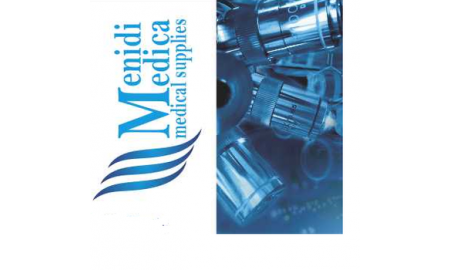MenidiMedica:
Clean Surface Protein Plus
Adenosine Triphosphate, or ATP, is the energy molecule found in all living things, making it a perfect indicator when trying to determine if a surface is clean or not. Food and beverage processors use ATP systems to rapidly verify surfaces have been cleaned thoroughly so that new product runs are not contaminated by prior product runs, and to ensure biofilms are not developing on the surface that could affect quality.
With an ATP hygiene monitoring system, ATP is brought into contact with MenidiMedica's unique sensitive liquid-stable reagents in the test device. Light is then emitted in direct proportion to the amount of ATP present in the sample, providing information on the level of contamination from 1 minute to 10 minutes. Detection limit is 0.3 fmoles of ATP.
Ideal for surfaces, instruments and allergens detection.
Available in kits of 50 tests and 100 tests. Self-life of each kit is 18 months.
StaviCheck Combi:
Easy to use, swab a surface, mix the sample with the ergonomical vial prefilled with the reagent and if any residue containing glucose and/or lactose is present the reagent will turn pink, indicating poor surface hygiene. The color density is proportional to the concentration of contamination present. StaviCheck Combi in 30 seconds validates the hygiene of a surface, allowing immediate corrective action to be taken.
Available Packing Options:
50 tests
100 tests
Trofopast Biomedix Herbicides Panoptis:
Importance of Herbicides Determination, including Glyphosate
Glyphosate, a broad-spectrum systemic herbicide, was introduced in 1974 by Monsanto under the trade name Roundup®. Glyphosate (N-(phosphonomethyl)glycine or 2-[(hydroxy-oxidophosphoryl)methylamino]acetic acid) is the largest selling agrochemical in the world and is marketed under dozens of trade names by many different manufacturers. Glyphosate is
used for vegetation control of perennial and annual plants, broad-leaf weeds, grasses, woody plants, and aquatic weeds, as well as grain desiccation to increase harvest yield. The introduction of genetically modified crops resistant to Glyphosate (i.e. Roundup Ready®) has caused an increased use of Glyphosate, allowing farmers to control weeds without harming their crops. The emergence of Glyphosate-resistant weeds has also caused increases in frequency and volume of applications of
Glyphosate in combination with other herbicides. Due to its widespread use, Glyphosate has become ubiquitous in the environment and food supply. Glyphosate can adsorb to soil and is highly water soluble, which can cause surface and ground water contamination from run- off, soil erosion, and leaching especially after heavy rainfall. The long-term impact on the environment and human health are growing concerns. In March 2015, the World Heath Organization’s International Agency for Research on Cancer classified Glyphosate as "probably carcinogenic in humans" (category 2A). Some studies show a correlation between exposure to Glyphosate-based herbicides and non-Hodgkin’s Lymphoma in humans and others show evidence of Glyphosate causing cancers in laboratory animals. In the European Union, the combined maximum residue level (MRL) for Glyphosate and its relevant metabolites in drinking water is 0.1 ng/mL. In February 2016, the U.S. Food and Drug Administration announced it will be testing the US food supply for Glyphosate. The MenidiMedica Trofopast Biomedix Herbicides Panoptis Assay can be performed in about 15 minutes and requires only a few microliters of sample.
Performance Data
Test sensitivity: The MenidiMedica Trofopast Biomedix Herbicides Panoptis has an estimated detection limit (90% B/B0) of 0.05 ppb (µg/L). The middle of the test (50% B/B0) is approximately 0.5 ppb. Determinations closer to the middle of the calibration curve give the most accurate results.
Test reproducibility: 100%
General Description
The MenidiMedica Trofopast Biomedix Herbicides Panoptis Kit is a biochemical assay for the qualitative and quantitative sensitive screening of herbicides, including Glyphosate in water , food, vegetables, fruits, human fluids samples. For soil, crop, and food sample applications, contact MenidiMedica for the appropriate technical bulletin and/or matrix validation guidelines. Samples requiring regulatory action should be confirmed by HPLC, GC/MS, or other conventional methods.
Available Packing Options:
100 tests

For more information visit:




